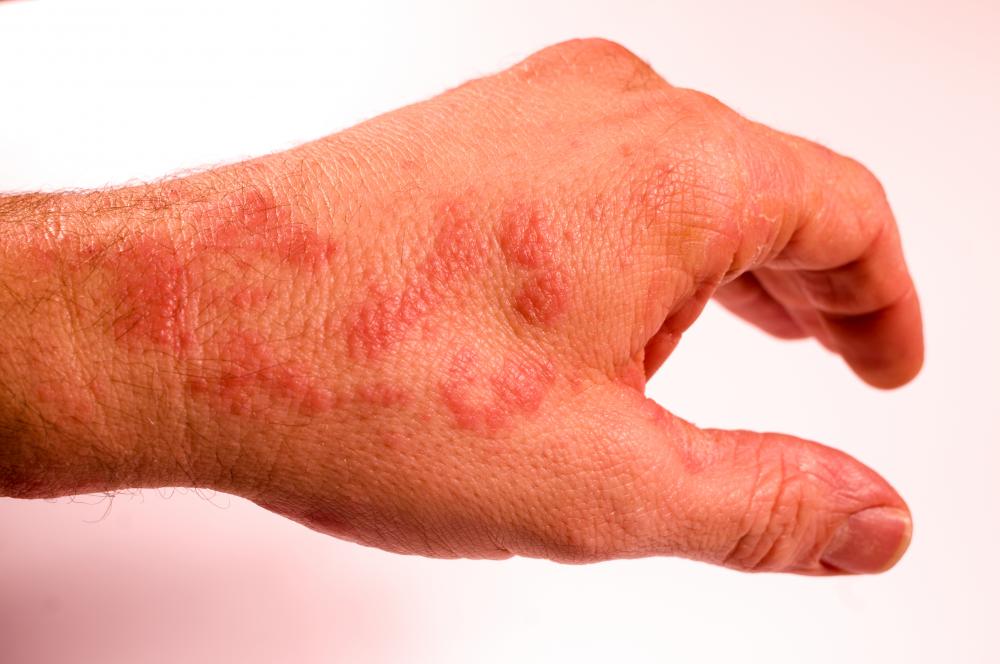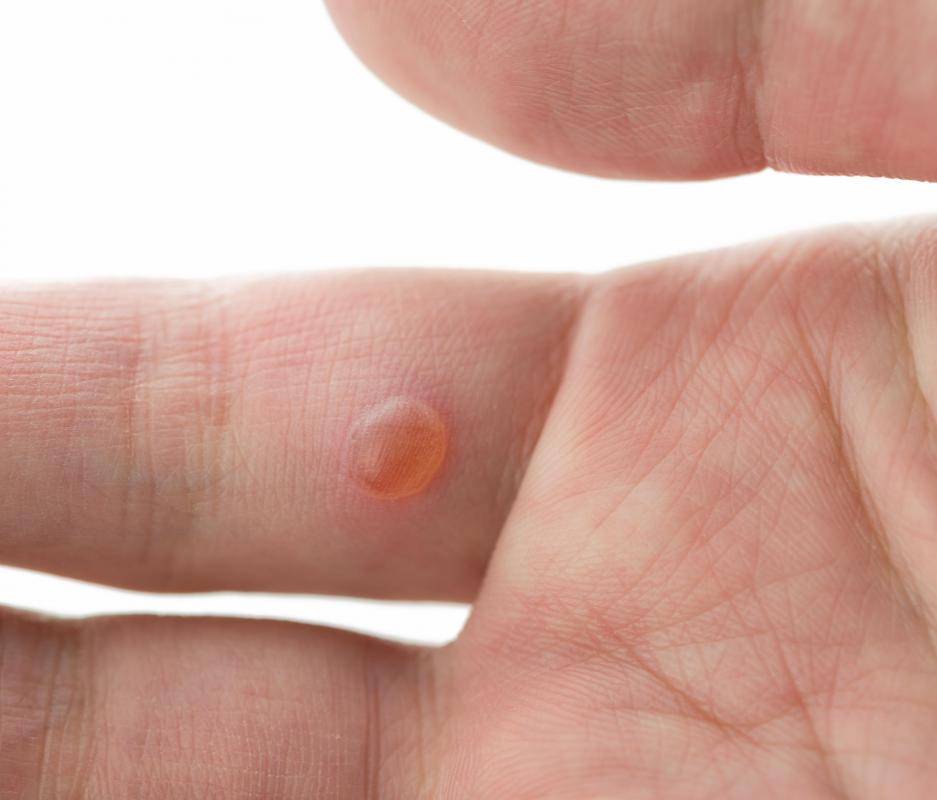At TheHealthBoard, we're committed to delivering accurate, trustworthy information. Our expert-authored content is rigorously fact-checked and sourced from credible authorities. Discover how we uphold the highest standards in providing you with reliable knowledge.
What are Some Types of Skin Infections?
Skin infections can range from mildly annoying to severely painful. There are several different types of infections that can affect the skin. Symptoms of a skin infection may include redness, tenderness, itching, flaky skin, rashes, and blister-type eruptions.
Fungal infections are some of the most common skin infections. Yeast infections, athlete’s foot, and jock itch are all caused by a fungus. Ringworm is another fungal infection. These infections are most commonly treated with anti-fungal creams. Ringworm is treated by an ingested anti-fungal medicine. Treatments for the less serious infections are often available over the counter at drug or department stores.

Another type of infection is bacterial. People who have diabetes, a history of bad sunburns or other skin damage, or an immune system deficiency are at a great risk for these infections. Cellulitis, one type of bacterial infection, is most often caused by a strep or staph infection. Impetigo is also caused most commonly by a staph infection. Folliculitus, boils, and carbuncles, all caused by infections at the root of a hair follicle, are other types of bacterial infections. Bacterial infections are treated by antibiotics, if necessary.

Viral infections are also fairly common. These include herpes, shingles, warts, and cold sores. These infections are treatable, but not all curable. Shingles, herpes, and cold sores are all characterized by outbreaks of small puss-filled blisters or crusted sores on the skin. There are over sixty varieties of warts, and most are caused by papillomavirus. They can be removed by a doctor, or treated with an over the counter product.

Skin infections can also be caused by parasites. Parasites are normally small worms or insects that burrow into the skin, and work their way through part of the body. Almost everyone has at least one variety of parasites living inside them. Hookworms, normally picked up from dogs or cats, can cause creeping eruption. Scabies, caused by small mites, can be spread person to person. Scabies presents with small red bumps where the mites have laid eggs. Lice are another parasitic skin infection. Lice are small, jumping bugs that live in hair. They are easily spread, usually from child to child. Parasitic infections are usually treated with topical creams and prescribed medications. Lice are usually treated with special shampoos that kill both lice and their eggs.

Skin infections are often contagious. Most require medical treatment. If you are in doubt as to whether or not you have an infection, contact your doctor or a dermatologist. Either one can accurately diagnose a skin condition and prescribe a treatment plan.
AS FEATURED ON:
AS FEATURED ON:




















Discussion Comments
What is the best treatment for the fungal skin infection that is on the back of the neck.
Could you tell me more about the symptoms of fungus skin infections? I would be very interested to learn in how you can tell whether an infection is fungal or not, and how to differentiate between the different kinds of fungus skin infections themselves.
Do you have any information about this topic?
@pleats -- Scary is right -- especially because it's true. However, there are a few things you need to understand about bacterial skin infections to truly understand how this works.
First, not all pimples contain staph bacteria. A boil may contain it, and some very infected acne may as well, but it's not like every single pimple you have is a source of staph.
Secondly, the body is pretty good at fighting off bacteria that cause skin infections, so their body may fight off the bacteria without them even knowing its there. The time that this kind of situation gets really serious is if you are around someone who is immuno-compromised, very old, or very young.
These people are more susceptible to any kind of infection, and have less of a chance of fighting it, should the infection become serious.
So although the situation to which you refer could certainly happen, and does certainly happen, it is rarely very serious unless the other party is immuno-compromised.
I had heard that it's possible to pass on a staph skin infection simply by popping a pimple and then shaking hands with someone -- is that true? Because if so, that's really, really scary!
Post your comments